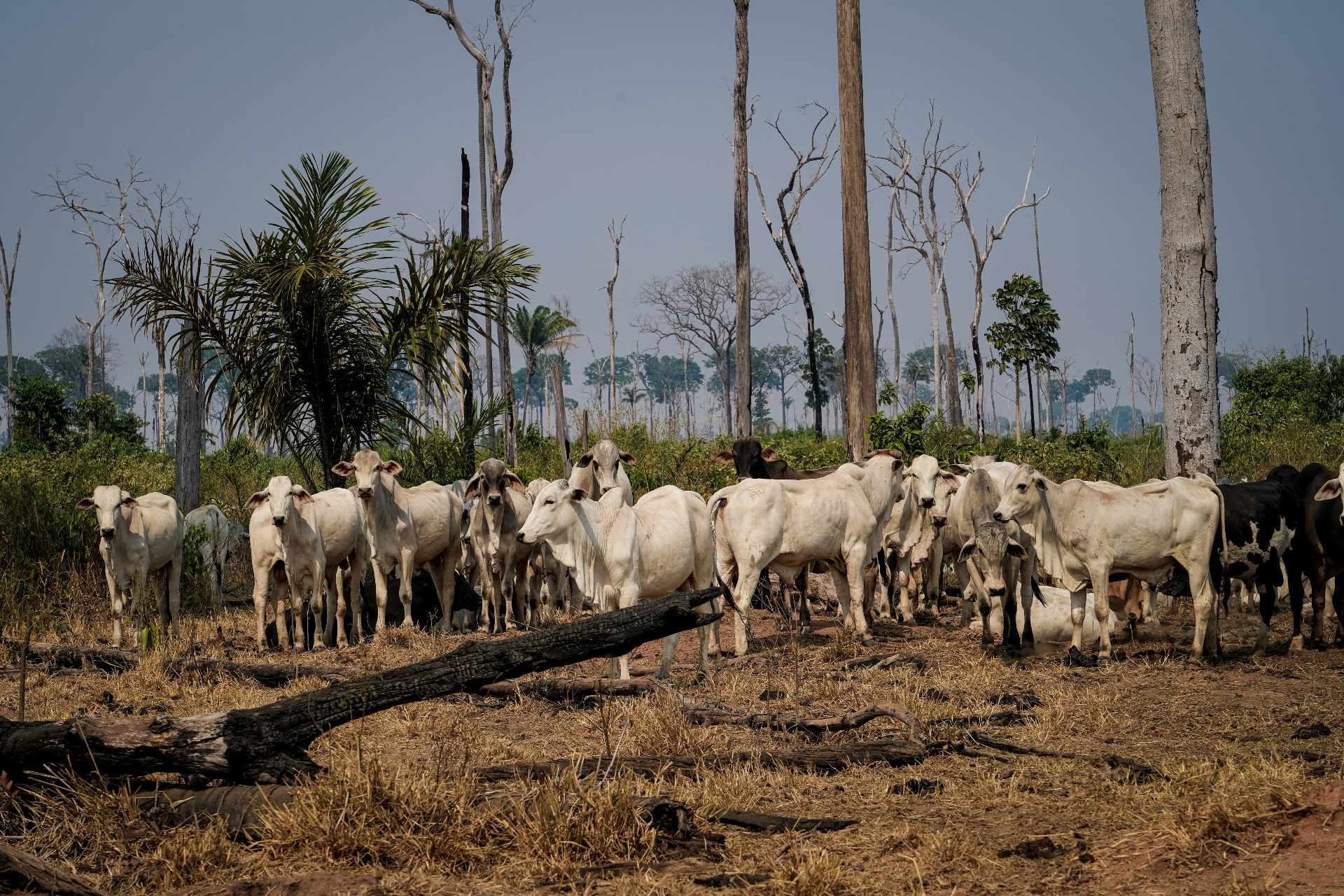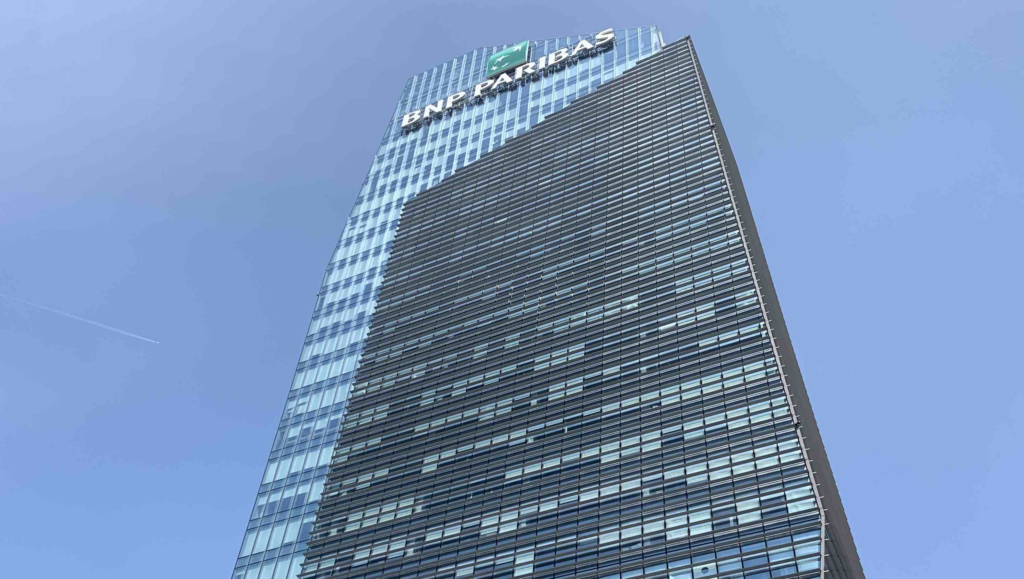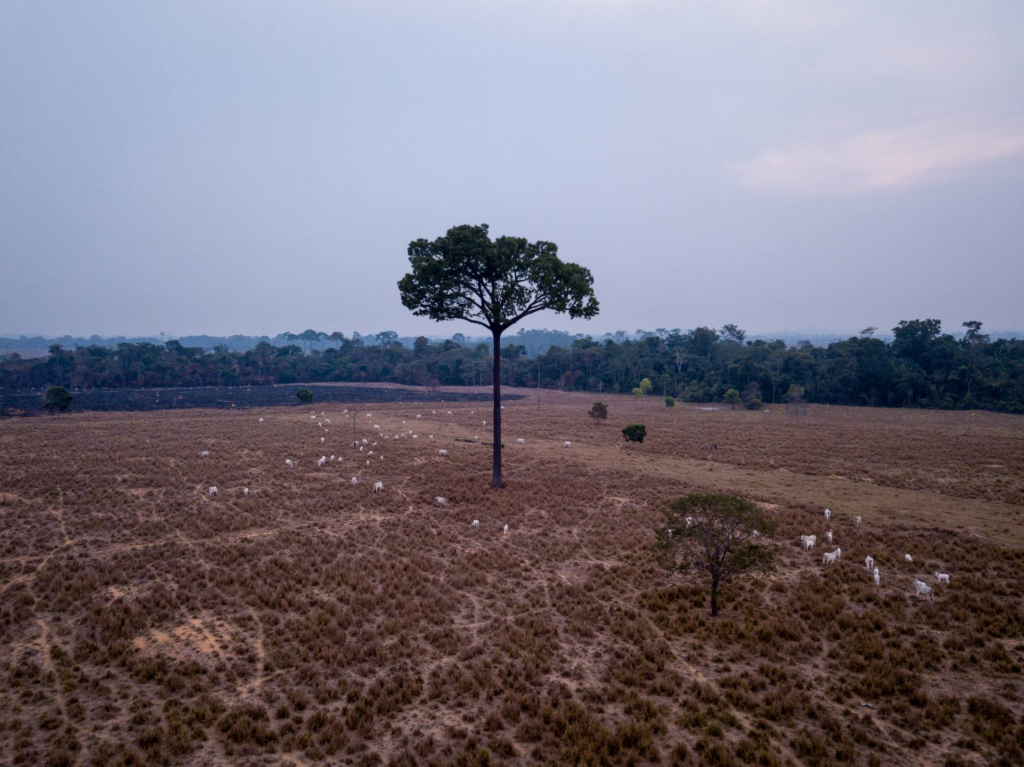News
NGOs demand daily fines of 10,000 Euros to BNP Paribas for irresponsibly financing Marfrig

Originally published by Repórter Brasil
NGOs go to French court to end BNP Paribas loan to the Brazilian meatpacking company or make it conditional to a plan to prevent deforestation and the use of slave labor, recurring problems in the livestock chain.
Two organizations that fight for socio-environmental rights, the Brazilian Pastoral Land Commission and the French Notre Affaire à Tous, filed a lawsuit in France today (27) to block financing granted by the largest bank in that country, BNP Paribas, to the Brazilian meatpacking company Marfrig. They are asking that the contracts be terminated and the bank fined 10 thousand euros per day, unless the loans are conditioned on the application of a rigorous risk analysis and a plan to prevent deforestation and the use of labor analogous to slavery – recurring problems in the livestock production chain that affect the company, which has been accused several times of slaughtering cattle raised on properties with these irregularities.
“Marfrig’s suppliers are involved in activities that have led to serious deforestation in the Amazon, the illegal appropriation of lands located in indigenous territories and forced labor,” the NGOs allege, according to a press release. Part of the evidence supporting the French lawsuit was extracted from investigations by Repórter Brasil into the meatpacking company’s suppliers, including the discovery that Marfrig was slaughtering cattle raised in the Apyterewa Indigenous Land, in São Félix do Xingu, Pará.
The indictment alleges that BNP Paribas violated the French law on the Duty of Vigilance (Loi sur le Devoir de Vigilance, also known as due diligence), which requires companies operating in the country to establish a robust plan with measures to identify risks and prevent serious violations of human rights and the environment that may result from their activities both in France and abroad.
In other words, the organizations say that the financial services provided by BNP Paribas to Marfrig are resulting in deforestation and slave labor in Brazil, without the bank properly addressing this.
This type of demand for broad corporate responsibility is a trend in Europe, where several laws of this kind are being approved or discussed.

“The evidence gathered reveals how inadequate the measures implemented by BNP Paribas are for it to be considered a true agent in the fight against deforestation in Brazil,” says Notre Affaire À Tous director Jérémie Suissa. “Although this is deforestation on Brazilian territory, this is a global discussion: the Amazon is crucial to our collective climate trajectory, and Brazil is the world’s largest exporter of beef,” adds the executive. The activists’ full demands can be read here.
In response to the complaints raised by NGOs, BNP Paribas detailed some of its policies for financing the livestock and soybean sectors in the Brazilian Cerrado and Amazon, and highlighted recent analyses that positively evaluate the institution’s strategy for preserving biodiversity.
“As the leading European bank, we are significantly exposed to potential lawsuits from NGOs, although, paradoxically, our sector policies are among the most rigorous in the sector,” says the note, which also advocates “the collective engagement of all financial institutions involved” in the issue. “Simply ceasing to finance these actors would not have a positive impact on their practices, as they would still have a large enough number of creditors for their activities.”
In turn, Marfrig reinforced “its commitment to making its supply chain completely deforestation-free by 2025”, revealing that it already monitors 100% of its direct suppliers and 72% of its indirect suppliers — “with the most critical areas (high and very high risk) already being completely tracked”. The full clarifications from the companies can be read here.
Urgency and Transparency

The filing of the lawsuit is a result of the public complaint and notification sent to BNP Paribas by the activist group in October last year. In January 2023, the bank responded to this letter, but according to the organizations, “the 10-page letter was full of greenwashing.” At the time, the bank reportedly stated its willingness to “suspend contracts with companies that do not present a zero deforestation strategy by 2025.”
The strategy, however, is considered insufficient by the organizations, who are pressuring BNP to immediately require its clients to provide full traceability of the beef supply chains in Brazil, including not only farms that sell directly to slaughterhouses but also so-called indirect suppliers – ranchers who pass on cattle through intermediaries, and who are not yet fully monitored by the companies. This needs to be done “now, not until 2025,” the activists argue.
The CPT and the organization Notre Affaire à Tous also reinforce the need for this data to be made public, “including the name of the farm, the farmer and their tax number”. This is a long-standing demand from civil society in Brazil, where several government agencies treat the guides that track the movement of cattle lots (GTAs) as confidential documents, although since 2015 there has been a recommendation from the Federal Public Prosecutor’s Office that they be made publicly accessible. The MPF has also filed a lawsuit to force the publication of data on the movement of animals between farms.
“In order to continue generating colossal profits through serious violations [of the environment and workers], Marfrig has prevented access to information regarding its supply chains, refusing to inspect its indirect suppliers responsible for abuses. Reasonable due diligence cannot allow BNP to tolerate such a situation”, criticizes Xavier Plassat, coordinator of the CPT’s Campaign against Slave Labor. “That’s why we’re going to the French courts: to make sure the law is strong enough to ensure these big corporations can’t get away with greenwashing.”
Marfrig said it did not work to restrict public access to animal transport data and that, on the contrary, it is working to create a public policy with this information. “Marfrig is fully in favor of the GTA databases being publicly accessible and that the transport documents also contain the CAR number. This would allow any organization in Brazil – private, public or civil society – to determine the perimeters of the farms traveled by a batch of animals until they arrive at the slaughterhouses, using the GTA.”
The organizations expect that, if the French courts admit the complaint and continue the process, the case could lead to a significant change in the behavior of corporations, with banks denying financial services to industries that violate human, environmental and climate rights. This is the first time that a bank has been reported for association with deforestation and failure to comply with the French law on due diligence, according to the authors. Last week, a group of organizations took BNP to court in France over the financing it provides to companies exploring fossil fuels.
infamous Connections

In November 2022, Repórter Brasil released the results of an investigation that detailed the relationship between BNP Paribas, Europe’s largest bank, and Brazilian meatpackers, particularly Marfrig. The report “Infamous Connections,” available in Portuguese and English, also demonstrates the involvement of four major French banks in a credit operation for Bunge. The transactions were made at a time when the companies were in the spotlight due to allegations that their suppliers had caused deforestation.
BNP Paribas is the main French investor in Brazilian livestock, according to data compiled by the Forests & Finance coalition, which maps the financial flows that supply the agricultural and mineral commodities sectors. Records show that in 2022, BNP Paribas had eight different financial operations to provide resources to meat giants that put forests in Brazil at risk, totaling almost US$ 456.5 million – six of these transactions had Marfrig as the recipient.
Among the investments made in recent years to Marfrig, two financial services operations stand out in which BNP Paribas acted as an ally of the meatpacking company in the launch of bonds on the market: BNP acted as an intermediary in the deals, supporting the offer to end customers, advising the company and developing strategies to ensure the sale is successful.
The most controversial of these operations occurred in 2019 and was supposed to mark the meatpacking company’s entry into the world of green bonds, which have goals linked to the preservation of nature. In this operation, BNP Paribas played central roles, including as a sustainability consultant, although the market initially rejected the idea that Marfrig, with its history of complaints linked to deforestation, could be included in the “sustainable finance” category, as revealed by the Reuters agency in 2019.
“The first time we looked at the idea of launching a green bond, we had to turn it down,” a banker who took part in the debate told Reuters. “We didn’t think it was possible,” he added. The bond was launched anyway, with the support of BNP Paribas, but instead of being a “green bond,” which would have entailed many obligations that the meatpacker could not guarantee, they decided to include the launch in the “sustainable transition bond” category, which would reflect the company’s efforts to clean up its supply chain rather than having specific targets to achieve.
BNP Paribas has been publishing annual Surveillance Plans since 2017, complying with the provisions of the French Duty of Vigilance law, but the report by Repórter Brasil shows how there are information gaps in these documents – something that is reinforced in the legal complaint filed by Notre Affaire à Tous and CPT with the French justice system, which among its demands included the need to “group together all the elements relating to the law on the Duty of Vigilance, in order to provide simple, clear, detailed and complete information on its implementation of this law” and “put an end to the ambiguity about its environmental commitments in its surveillance plan and in its public communication, which contributes to greenwashing”.
Correction: This article was updated on 02/28/2023, at 09:18, to correct information. The first version of this text reported that it was the first time that a financial institution had been taken to court in France for failing to comply with the due diligence law, but on 23/02/2023, the same BNP was reported to the courts for financing fossil fuel companies, based on the same law.